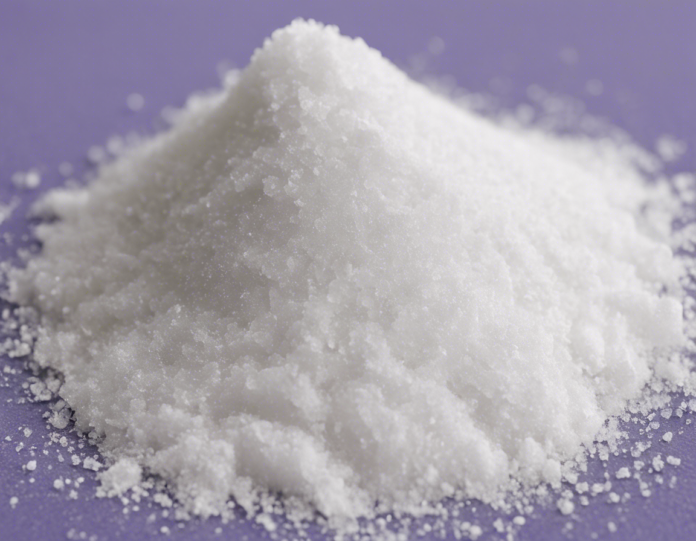Sodium carbonate, commonly known as soda ash or washing soda, is a white, odorless powder that is used for various applications across industries such as chemicals, glass manufacturing, soaps and detergents, and is even used as a food additive. What sets sodium carbonate apart is its chemical composition and properties, particularly its basicity as a salt.
Understanding Sodium Carbonate:
Sodium carbonate is a water-soluble salt that forms a strongly alkaline solution when dissolved in water. Its chemical formula is Na2CO3, which indicates that it contains two sodium (Na) ions, one carbon (C) ion, and three oxygen (O) ions. This composition plays a key role in determining its basic nature.
Chemical Reaction:
When sodium carbonate dissolves in water, it undergoes a dissociation reaction that forms sodium ions (Na+) and carbonate ions (CO3^2-). The presence of carbonate ions is what imparts the basic properties to sodium carbonate solution.
The dissociation reaction can be represented as follows:
Na2CO3 (s) → 2 Na+ (aq) + CO3^2- (aq)
Basicity of Sodium Carbonate:
The basicity of a substance refers to its ability to accept protons (H+) or donate hydroxide ions (OH-) in a chemical reaction. In the case of sodium carbonate, it is classified as a basic salt due to the carbonate ion’s ability to accept protons and form hydroxide ions in solution, leading to an alkaline pH.
Properties Contributing to Basicity:
-
Hydrolysis: When dissolved in water, sodium carbonate undergoes hydrolysis, where water molecules break down carbonate ions to form hydroxide ions, resulting in an alkaline solution.
-
Buffering Effect: Sodium carbonate exhibits a buffering effect, meaning it can maintain a stable pH when small amounts of acids or bases are added. This property is essential in various applications where pH control is crucial.
Applications of Sodium Carbonate:
-
Water Treatment: Sodium carbonate is used in water treatment processes to adjust pH levels and soften water by precipitating magnesium and calcium ions.
-
Glass Manufacturing: In the glass industry, sodium carbonate is a vital ingredient in the production of glass, where it helps lower the melting point of silica and improve the glass’s chemical resistance.
-
Cleaning Products: It is a common ingredient in detergents and household cleaning products due to its alkaline properties, which help in removing grease and stains effectively.
-
Food Industry: Sodium carbonate is utilized as a rising agent in the baking industry, contributing to the formation of carbon dioxide gas, which helps dough or batter expand during baking.
Safety Precautions:
While sodium carbonate has various industrial and household applications, it is important to handle it with care due to its alkaline nature. Direct contact with skin or eyes can cause irritation, so it is advisable to use protective equipment such as gloves and goggles when working with sodium carbonate. In case of accidental exposure, immediate rinsing with water is recommended.
Environmental Impact:
Sodium carbonate is considered a relatively safe compound for the environment. It is biodegradable and does not pose significant risks to aquatic life when used in recommended quantities. However, like all chemicals, proper disposal guidelines should be followed to minimize any potential environmental impact.
FAQs:
- Is sodium carbonate the same as baking soda?
-
No, sodium carbonate (Na2CO3) is not the same as baking soda, which is sodium bicarbonate (NaHCO3). While both are alkaline compounds, they have different chemical compositions and properties.
-
How can I safely use sodium carbonate for cleaning purposes?
-
When using sodium carbonate for cleaning, dilute it in water as directed by the manufacturer’s instructions. Wear protective gear such as gloves and ensure proper ventilation in the area.
-
Can sodium carbonate be used as a substitute for sodium bicarbonate in recipes?
-
While both compounds are alkaline, they may not always be interchangeable in recipes due to differences in chemical behavior. It is best to use the specific ingredient mentioned in the recipe.
-
Is it safe to mix sodium carbonate with other cleaning agents?
-
It is not recommended to mix sodium carbonate with acidic cleaning agents such as vinegar or lemon juice, as it can produce harmful fumes. Always use sodium carbonate as directed and avoid mixing it with incompatible substances.
-
What is the shelf life of sodium carbonate?
- Sodium carbonate has a long shelf life when stored in a cool, dry place away from moisture. Properly sealed containers can maintain the compound’s effectiveness for extended periods.
In conclusion, sodium carbonate’s basic nature stems from its chemical composition and ability to form alkaline solutions. Understanding its properties and applications can help in utilizing this versatile compound effectively while ensuring safety and environmental consciousness in its use.




